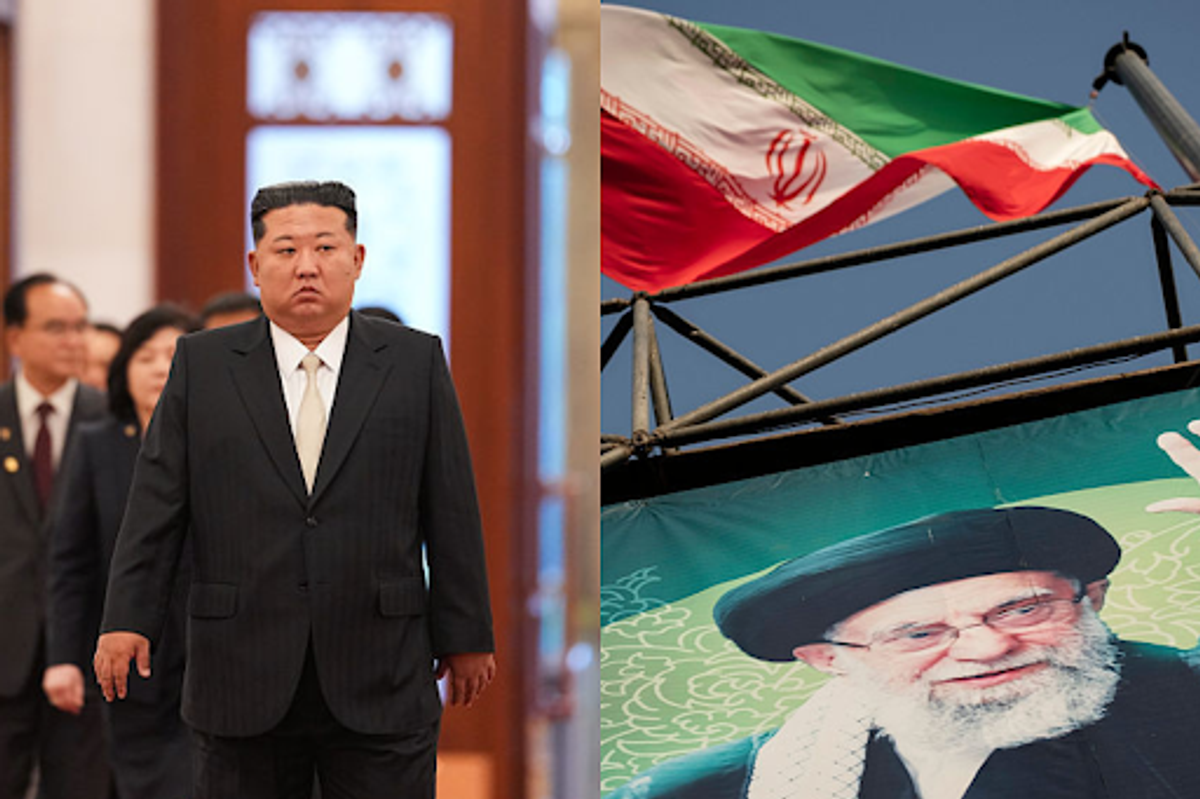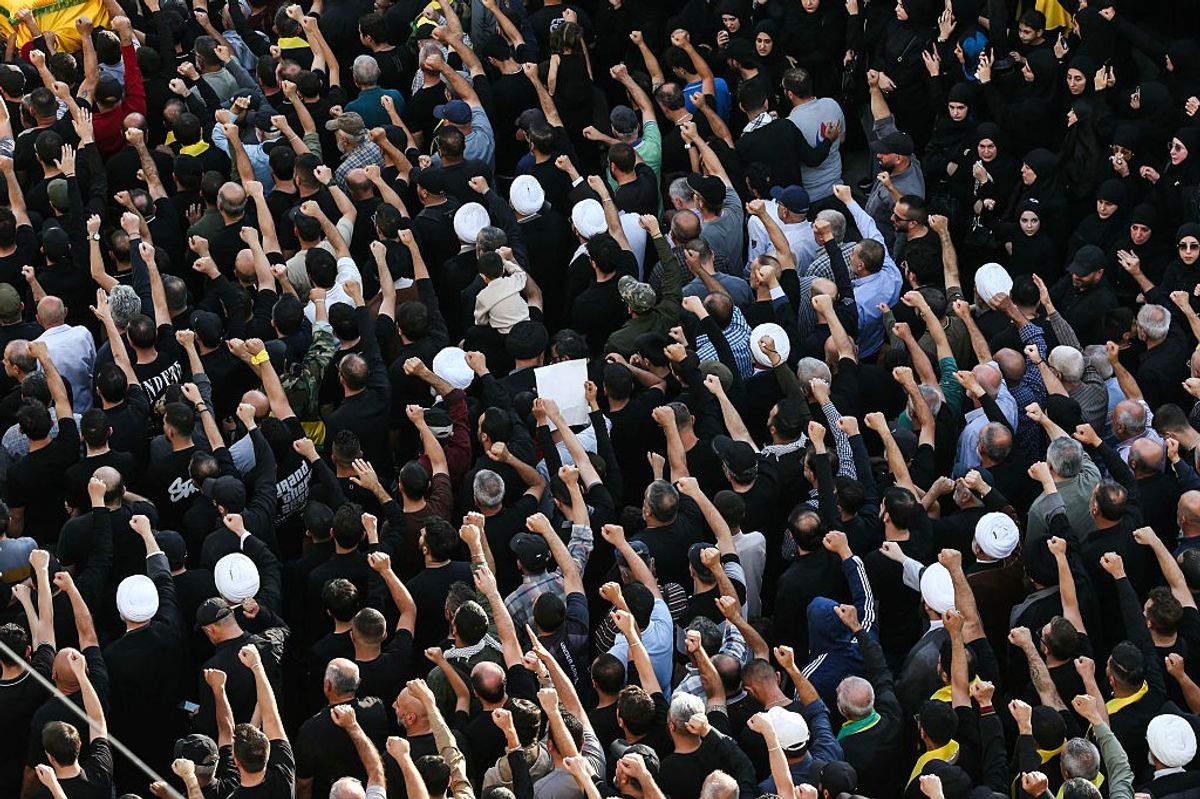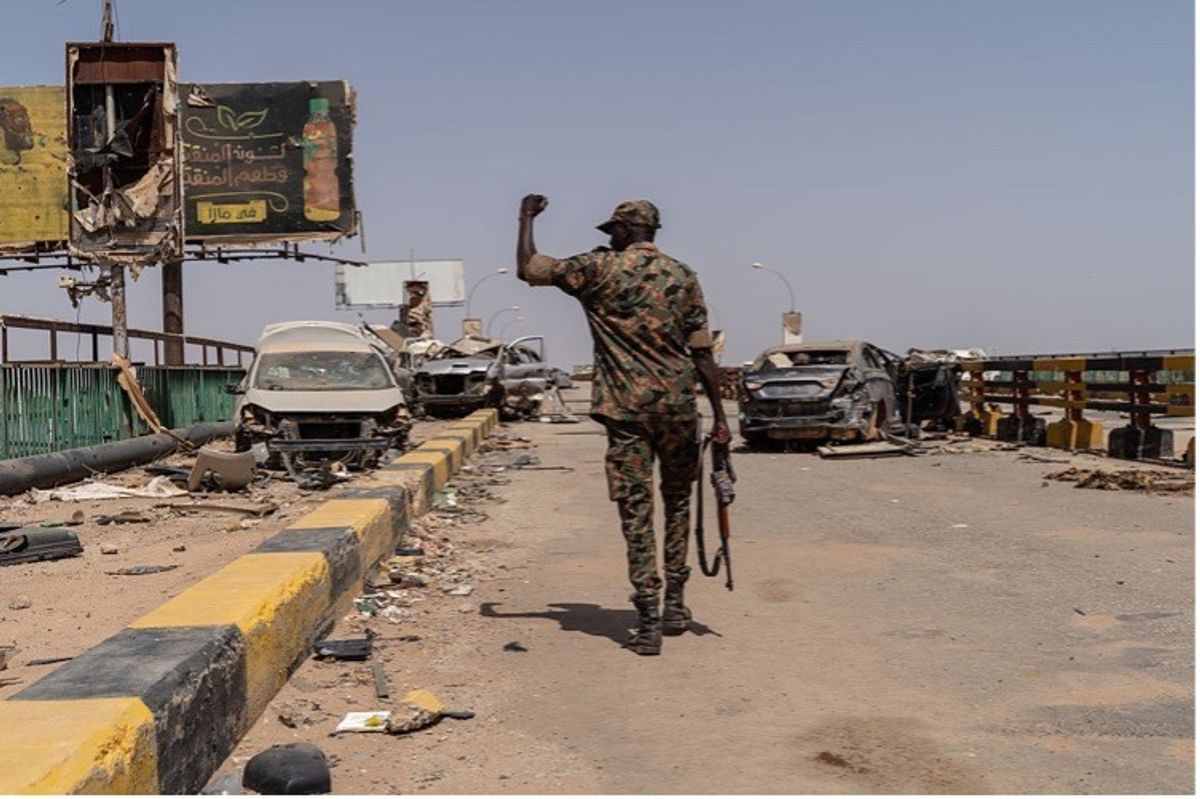OPINION — As Israel's unprecedented military campaign and targeting of Iranian military leaders and scientists wreaked havoc across Iran last week, Supreme Leader Ayatollah Ali Khamenei retreated to a bunker and initiated deliberations over his successor. With the 2024 death of a former leading contender, President Ebrahim Raisi, and Khamenei’s recent sidelining of his son, Mojtaba, the powerful head of Iran’s judiciary and former intelligence minister, Gholam-Hoseyn Mohseni-Ejei, is likely a serious candidate for the role of the Islamic Republic’s next Supreme Leader.
Mohseni-Ejei possesses formidable credentials for ensuring the survival of the Islamic Revolution, the regime’s highest strategic goal. A longtime insider, his career bridges the two most critical organs of internal regime preservation: the judiciary and the Ministry of Intelligence. He had deep-rooted ties to Raisi, his predecessor as judiciary head, and to the current intelligence minister, Esmail Khatib. These relations reflect decades of institutional collaboration, trust building, and ideological alignment. All three men cut their teeth in the judiciary and intelligence bureaucracy, sharing not only a hardline outlook but close connections with Khamenei. With Raisi gone and the regime under siege, Khamenei may view Mohseni-Ejei as the most experienced and dependable successor to steer the Islamic Republic through a moment of existential peril. If so, he almost certainly will make this known to the Assembly of Experts, the body of clerics that chooses the Supreme Leader.
Mohseni-Ejei’s ascent is not based merely on his personal ties. It also reflects the growing centrality of the intelligence-security-judiciary triad in safeguarding the regime’s continuity. More recently, as the Israel-Iran war has intensified, Iranian leaders have shifted their focus further inward— ramping up internal surveillance, searching for traitors, and shutting down communications with the outside world. In this context, his control over the judiciary and having a friend head the Ministry of Intelligence potentially provide Mohseni-Ejei unrivaled leverage over the members of the Assembly of Experts and other powerful figures among Iran’s political factions.
The Cipher Brief has been talking with the foremost experts on the region since the surprise U.S. strike on Iran's nuclear facilities- including former National Intelligence Manager for Iran at ODNI and energy expert Norm Roule and former CIA Director General David Petraeus (Ret.) - about what comes next in Iran. Watch the interviews exclusively on The Cipher Brief's YouTube Channel and subscribe to make sure you stay up to date on how the experts see events unfolding.
Under Mohseni-Ejei’s leadership, the judiciary embraced expansive interpretations of national security law to suppress political unrest, ethnic dissent, and defiance of intrusive morality laws. Khatib’s MOIS has worked in tandem, deploying aggressive surveillance and conducting wide-scale arrests to suppress dissent. To relieve some pressure from a public angry about Iran’s failing economy and petty repressive measures such as mandatory hijab, the judiciary has reduced enforcement of some restrictions over the past year. Nonetheless, the collaboration between Mohseni-Ejei and Khatib since 2021 represents one of the most coordinated periods of state repression during the regime’s four-plus decades of existence.
Crucially, Khamenei’s recent decision to provide the Assembly of Experts with three preferred names—an unprecedented move in the Islamic Republic’s history—suggests a pragmatic urgency favoring survival over process. If Khamenei values institutional loyalty, ideological orthodoxy, and the machinery of domestic control, Mohseni-Ejei may be the logical choice. His past leadership of the MOIS and current control of the judiciary give him operational experience in both managing crises and protecting the Islamic revolution. Moreover, his long-standing ties to Khamenei himself—dating back to his early years monitoring potential “deviation” within the intelligence services—suggest trust built over decades of mutual survival.
Critics may cite Mohseni-Ejei’s role in past abuses, including the post-2009 Green Movement crackdown and his promotion of a crackdown on dress code infractions that led to the Mahsa Amini protests of 2022. However, within the current regime such episodes are not stains but qualifications. With the United States now directly involved in the war, Iran’s leadership may gravitate toward a man whose entire career has been defined by countering sedition, exposing conspiracies, and upholding ideological discipline through the courts and the intelligence apparatus.
In Iran’s increasingly closed and militarized political sphere, the path to supreme authority may not lie in clerical scholarship or charisma, but in institutional command and operational loyalty. Mohseni-Ejei, a consummate enforcer, may well be the last man standing when the Assembly of Experts makes its fateful choice.
Read more expert-driven national security insights, perspective and analysis in The Cipher Brief because National Security is Everyone’s Business.















